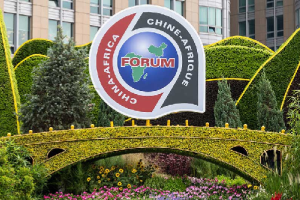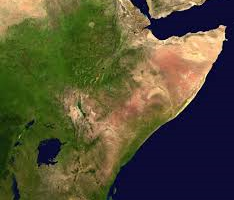
For a long time and arguably, the Horn of Africa has been considered to be the microcosm of all problems, a flashpoint for never-ending hostilities and human suffering, and a major security risk for the entire world.
The region remains one of the world’s strategic regions struggling to nurture political stability and progress toward assuring lasting peace and security, given that the area continues to act as a springboard for terrorism, piracy, and other dangers. The volatile yet crucial territory has been marked by armed struggle, communal confrontations, prolonged war, exodus, and failed reforms.
The region seems to be in turmoil as South Sudan gets embroiled in protracted fighting, Sudan is undergoing a make-or-break transformation, and Somalia is having difficulty establishing a strong and stable central government. Peace has long been elusive. Furthermore, the region is still mired in uncertainty, with both natural and man-made calamities resulting in frightening and frequent humanitarian crises.
And, for long there is strong conviction although going through some internal mayhem, Ethiopia, with its sizable population, wealth, and diplomatic and political influence, can unite the surrounding nations to maintain peace in the region.
And, this is what the government has been doing. It has been acting boldly to maintain peace and security in the Horn of Africa, which has been devastated by conflict. The Ethiopian government has been setting the example for regional peace, first by reaching out to Eritrea and then by mediating conflicts between warring groups in South Sudan and now in Sudan.
The country continues to mobilize other countries in support of regional integration and efforts to restore peace. Through peacekeeping operations or mediation, Ethiopia has been instrumental in preserving security and stability in the volatile region.
Even in a period of internal turmoil, Ethiopia has remained a dependable ally to its neighbors through thick and thin, despite both established and newly emergent threats. Ethiopia has always been a reliable and devoted ally in times of need, regardless of the government in power. Ethiopia has been a tremendous stabilizer and defender of regional peace, doing everything from sending soldiers to mediating peace agreements between warring parties.
Empirical evidence also motivates Ethiopia’s commitment to regional peace. To assist in resolving Sudan’s situation, Premier Abiy flew to Sudan this week and the nation started demarcating its borders with that country.
“Our diplomacy is based on mutual growth and cooperation. We never exploited Sudan’s situation to our advantage. Sudan has been in turmoil and the government has been unable to pay the bills for Ethiopia’s power supply. We have never cut the electricity supply since we believe in the brotherhood. We just cannot abandon our brothers during this difficult time. We could have taken back the land invaded by Sudan had we wanted to take the situation in Sudan,” Abiy added.
Earlier this week, Prime Minister Abiy arrived in Port Sudan as per of his country’s commitment to finding sustainable solutions for Sudan’s stability. The premier held a fruitful discussion with the Chairman of Sudan’s Transitional Sovereign Council General Abdel Fattah Al-Burhan.
Ethiopia and Sudan share 744 kilometers of common border, the Government Communication Service Minister Legesse Tulu(PhD) highlighted the long-standing relations between the two nations in terms of people-to-people, cultural and economic ties.
The Minister also highlighted the various efforts being carried out by Ethiopia to encourage the Sudanese forces to resolve their differences peacefully and work in collaboration to bring peace to their country. He expressed Ethiopia’s continued commitment to bring peace to Sudan, according to local media.
In addition to its efforts to help stabilize Sudan, Ethiopia has also been supplying electricity to the region and is aggressively engaged in joint development projects with other neighboring countries. Moreover, it also deployed peacekeeping forces in other nations to help resolve conflicts and restore peace.
In his last meeting with lawmakers, Prime Minister Abiy Ahmed reiterated. Ethiopia’s diplomatic policy towards neighboring countries is based on collaboration and mutual development.
Highlighting Ethiopia’s diplomatic priorities to the 36th regular session of the House of People’s Representatives recently, he noted the government’s determination to resolve disputes with Sudan and bring internal peace to Sudan through negotiations.
The Sudanese people are peace-loving and they have strong social bonds with the Ethiopians, the premier said.
He also cited the strong relations with Ethiopia’s neighbors, mentioning their shared history, cultural ties and longstanding diplomatic relations.
According to him, the Ethiopian people and government are non-partisan to the parties involved in the ongoing conflict in Sudan.
“We are desirous that the conflict be resolved peacefully,” the PM said.
Also, Ethiopia could have reclaimed the Al-Fashqa area during this time of conflict in Sudan, but we are waiting patiently until the rivals in Sudan resolve their differences and the country becomes peaceful, he elaborated.
In addition, Ethiopia has continued to export electricity to Sudan throughout the conflict without requesting immediate payment, Abiy added.
Concerning relations with Somalia, he recalled the brotherly relations and cooperation with Somalia.
Ethiopia has paid dearly to the peace and development of the neighboring state of Somalia.
The PM recalled the sacrifices paid by Ethiopian soldiers in Somalia to ensure the peace and stability of the country.
Ethiopia not only respects Somalia’s sovereignty and territorial integrity but also strongly desires its peace, Abiy reiterated.
With regard to the MoU signed with Somaliland, he underscored that the deal has been part of Ethiopia’s effort to get access to the sea and should not be considered a violation of territorial integrity.
The premier stressed that Ethiopia’s quest for access to the sea is legitimate and in line with its national interest.
Given its big economy, the country should not be deprived of access to the sea, the PM underlined.
Furthermore, Ethiopia is ready to deal with Somalia on pertinent issues based on a win-win approach and through negotiation.
The premier summed up that Ethiopia’s interest is to work together with neighboring countries Djibouti, Eritrea, Kenya, Sudan, and Somalia for regional cooperation, peace and mutual development.
ENA reported that Foreign Affairs Minister Taye Atske-Selassie has conferred with Annette Weber, European Union Special Representative for the Horn of Africa, today.
According to the Ministry of Foreign Affairs, they mentioned Prime Minister Abiy Ahmed’s admirable peace efforts for Sudan while discussing peace and security issues in the Horn of Africa.
In this regard, both sides emphasized the need to support Prime Minister Abiy’s efforts and the importance of working together to ensure peace in Sudan within the African framework.
They also discussed the current situation in Somalia, as well as other issues concerning the Horn of Africa and the Red Sea.
The two sides concurred that further discussions should be held to strengthen Ethiopia-EU strategic cooperation.
BY STAFF REPORTER
The Ethiopian herald July 14/2024





